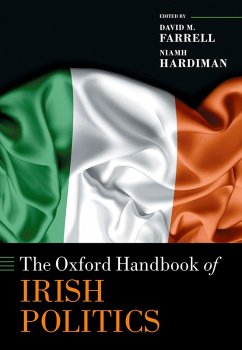Ireland has enjoyed continuous democratic government for almost a century, an unusual experience among countries that gained their independence in the 20th century. But the way this works in practice has changed dramatically over time. Ireland's colonial past had an enduring influence over political life for much of the time since independence, enabling stable institutions of democratic accountability, while also shaping a dismal record of economic under-development and persistent emigration. More recently, membership of the EU has brought about far-reaching transformation across almost all aspects of Irish life. But if anything, the paradoxes have only intensified. Now one of the most open economies in the world, Ireland has experienced both rapid growth and one of the most severe crashes in the wake of the Great Recession. On some measures Ireland is among the most affluent countries in the world, yet this is not the lived experience for many of its citizens. Ireland is an unequivocally modern state, yet public life continues to be marked by formative ideas and values in which tradition and modernity are held in often uneasy embrace. It is a small state that has ambitions to leverage its distinctive place in the Atlantic and European worlds to carry more weight on the world stage. Ireland continues to be deeply connected to Britain through ties of culture and trade, now matters of deep concern in the context of Brexit. And the old fault-lines between North and South, between Ireland and Britain, which had been at the core of one of Europe's longest and bloodiest civil conflicts, risk being reopened by Britain's new hard-edged approach to national and European identities. These key issues are teased out in the 41 chapters of this book, making this the most comprehensive volume on Irish politics to date.
Dieser Download kann aus rechtlichen Gründen nur mit Rechnungsadresse in A, B, BG, CY, CZ, D, DK, EW, E, FIN, F, GR, HR, H, IRL, I, LT, L, LR, M, NL, PL, P, R, S, SLO, SK ausgeliefert werden.


